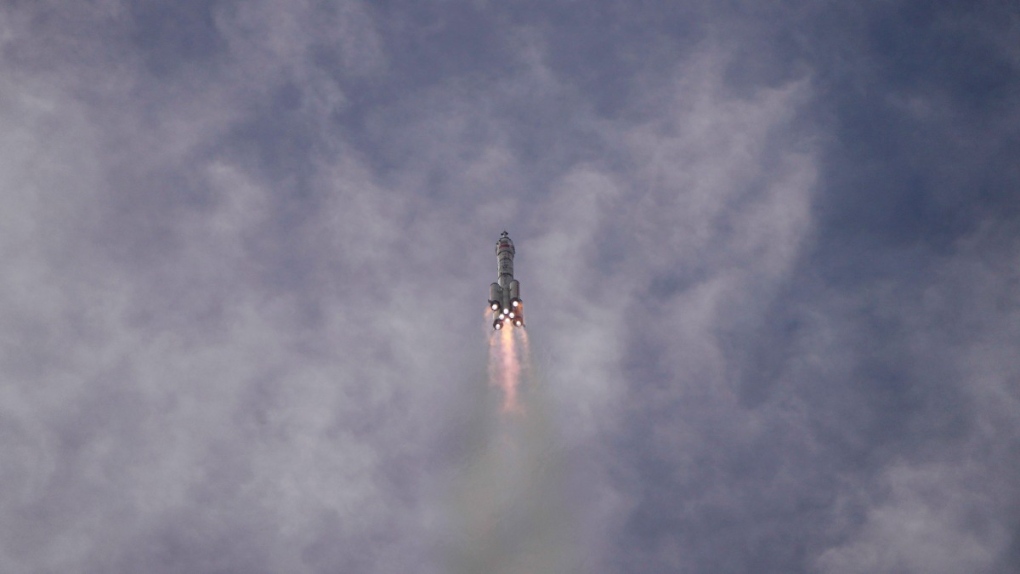BEIJING -
China launched a new three-person crew for its orbiting space station on Tuesday, with an eye to putting astronauts on the moon before the end of the decade.
The Shenzhou 16 spacecraft lifted off from the Jiuquan launch centre on the edge of the Gobi Desert in northwestern China atop a Long March 2-F rocket just after 9:30 a.m. (0130 GMT) Tuesday.
The crew, including China's first civilian astronaut, will overlap briefly with three now aboard the Tiangong station, who will then return to Earth after completing their six-month mission.
A third module was added to the station in November, and space program officials on Monday said they have plans to expand it, along with launching a crewed mission to the moon before 2030.
China built its own space station after it was excluded from the International Space Station, largely due to U.S. concerns over the Chinese space programs' intimate ties with the People's Liberation Army, the military branch of the ruling Communist Party.
China's first manned space mission in 2003 made it the third country after the former Soviet Union and the U.S. to put a person into space under its own resources.
On the this latest mission, payload expert Gui Haichao, a professor at Beijing's top aerospace research institute, will join mission commander Maj. Gen. Jing Haipeng, who is making his fourth flight to space, and spacecraft engineer Zhu Yangzhu.
The crew will stay aboard the station for around five months, during which they will conduct scientific experiments and regular maintenance.
The mission comes against the background of a rivalry with the U.S. for reaching new milestones in space. That has been largely friendly, but also reflects their sharpening competition for leadership and influence in the technology, military and diplomatic fields.
American spending, supply chains and capabilities are believed to give it a significant edge over China, at least for now. China has broken out in some areas, however, bringing samples back from the lunar surface for the first time in decades and landing a rover on the less explored far side of the moon.
The U.S., meanwhile, aims to put astronauts back on the lunar surface by the end of 2025 as part of a renewed commitment to crewed missions, aided by private sector players such as SpaceX and Blue Origin.
In addition to their lunar programs, the two countries have also separately landed rovers on Mars, and China plans to follow the U.S. in landing a spacecraft on an asteroid.










































